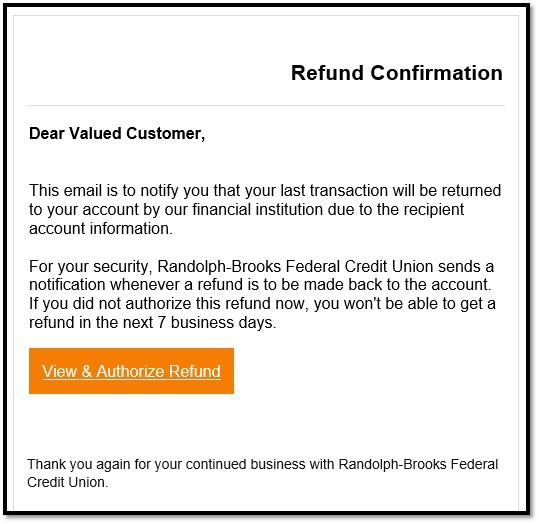Phishing Alert: RBFCU Warns of Attempted Email Scams Targeting Members and Nonmembers
LIVE OAK, Texas (Jan. 10, 2020) — RBFCU IT Security and Fraud teams have observed an increase in phishing emails and other activities aimed at compromising members’ accounts. These third-party emails attempt to obtain personal information through fraudulent messages and websites mimicking RBFCU.
We will never distribute emails or other messages, nor will a representative place phone calls to members, asking for sign-in information, including passwords. RBFCU asks all members to be vigilant with their account information.
If you feel your account may have been compromised, please immediately contact the RBFCU Member Service Center at 210-945-3300.
What Is Phishing?
According to the Federal Trade Commission (FTC), phishing is when:
• You get emails, texts or calls that seem to be from companies you know or trust (your financial institution, an online store, etc.), but they’re actually from scammers.
• You’re encouraged to click on a link and give personal information (like a password) so that they can steal your money, identity or gain access to your computer. The link (or verbal request for information) often looks legitimate or convincing and may deal with invoices, payments, government refunds, coupons, etc.
Learn more about how to recognize phishing and protect yourself from it.
Below is an example of a phishing email:
